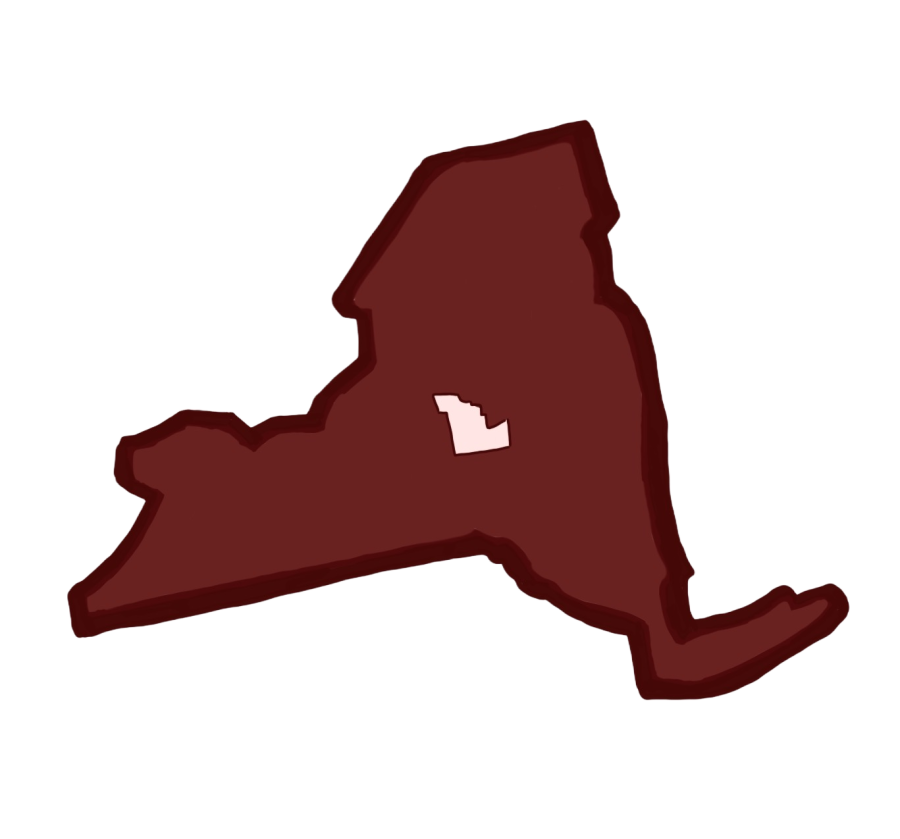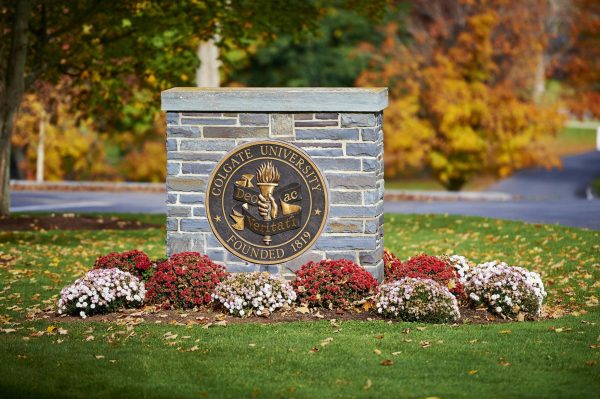You Have No Idea Where You Are
Have you reckoned Madison County much? Have you reckoned Upstate New York much? As the vast majority of you reading this are likely students at Hamilton’s own “academic outpost in the wilderness,” you have surely considered this region. Perhaps only on the drive to get to Colgate from New York City, New England or the Syracuse Airport, but you’ve surely pondered the land on which our school sits. Maybe you only regard it when complaining about the 37-minute drive to the nearest Target, or during the extra three minutes to get to the nearest Chipotle. What is this empty agrarian expanse within which you have chosen to attend school? Let me tell you.
I was not born in Madison County. Instead, I grew up between the hills and lakes of New York’s Finger Lakes region in a town less than half the size of our beloved Hamilton. Now, while being a native of Upstate New York gives me a substantial degree of dirt-road credibility in Madison County, I would have much, much more if I had been born in Eaton, or Lennox, or Fenner, or Nelson, or Peterboro. This is because the culture of Madison County is unique to the hills and hollows it is comprised of. Despite its proximity to the modestly sized city of Syracuse, Madison County has been isolated since its inception. With three major U.S. highways skirting the county, it has been allowed to retain its secluded nature as the rest of the region has developed.
This character is best visible on the drive from Sheds to Georgetown to Lebanon, or from Hamilton over the hills to Brookfield. Life here in Madison County is full of a beautiful simplicity that many Colgate students are not accustomed to and cannot fully appreciate. Students often think that Madison County is a place to escape from, when, in truth, it is a place to escape to. This is how generations of people came to be residents of the hills of Madison County. Ancestors escaped here, and here, their descendants remain.
With this remoteness comes some distinct cultural characteristics. My summer fellowship through Colgate’s Upstate Institute took me across the county, conversing with dairy farmers and agricultural workers. This is what I have learned: Madisonians are skeptical of outsiders and authority, but they are welcoming and courteous just the same. They enjoy simple pleasures, such as chicken barbeques in the parking lot of a Tractor Supply Co., a boat day on one of the county’s many reservoirs, and freshly harvested food grown in well-tilled earth. Life in Madison County does not carry the flashy spirit of the city, but it centers itself on hardiness and self-sufficiency.
Why should you, as a Colgate student, care about any of this? Well, I would ask you to consider where you have spent your life. Does it look like Madison County? Has it been more urban, more rural or relatively the same? If your home isn’t like Madison County, there is much for you to learn about the world by being here. Students like us here at Colgate will inevitably end up running many of the institutions which impact life in places like Madison County, despite how isolated this region might seem. By immersing yourself in the culture of central New York, you can gain an understanding of perspectives and ways of life that might not exist where you grew up. The learning offered by Upstate New York doesn’t end when you step off-campus, it changes.
So what should you do to make the most of this opportunity that Upstate has presented to you? The process is three-fold; observe, interact and converse. Observe the countryside as you drive the winding roads through the hills and hollows surrounding Colgate. Observe the people as you do, not as rural exhibits for you to judge, but as people pursuing a way of life that is quite alien to you. As you pass, wave to the Amish boys driving the buggy, once you have sufficiently reduced the speed of your vehicle. Help the elderly woman carry her groceries bags to her car. Then, once you have done that, push further. Stop at the farmstand you pass on the side of the road, and talk to the man or woman who runs it about the most recent growing season. Ask them what they think you should buy.
For a moment, let go of the upbringing you have carried with you and understand that we, the people of Upstate, lead very different lives than you are familiar with. Who knows, perhaps you’ll teach us a thing or two through this increased interaction. Finally, stop calling us “townies,” for we did not grow up in the towns. We grew up in the branches of the maples and on the stones of the streams. If anything, to folks like us, you’re the ones who are townies.













